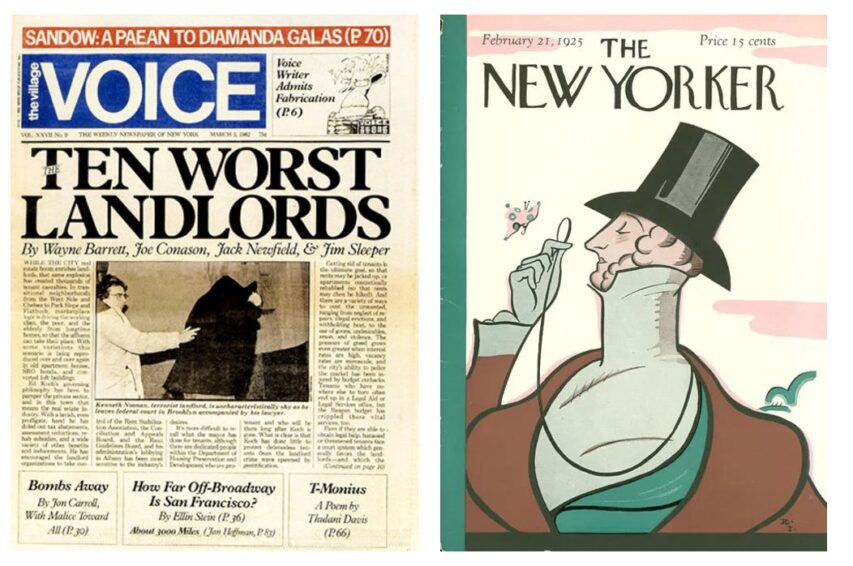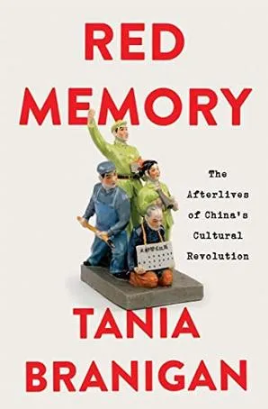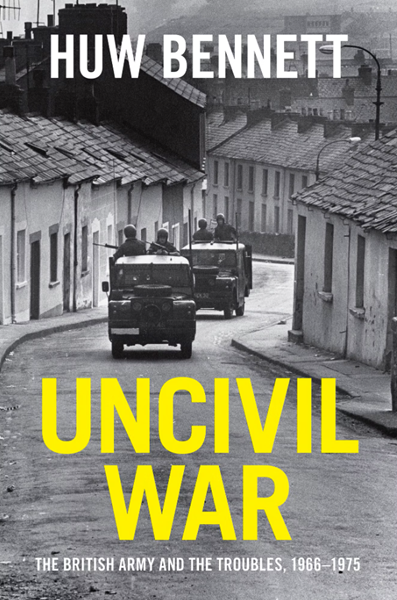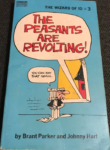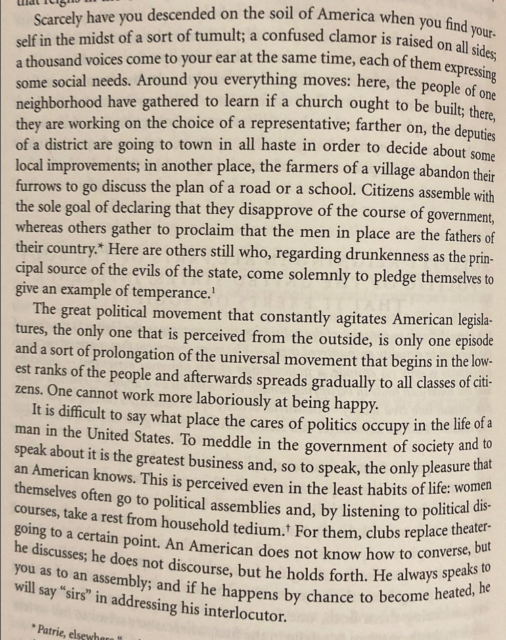JB Anderton
Published Jan 8, 2024Batman TV Theme written by Neil Hefti
Arrangement by JB Anderton
Bass, guitar, keyboards and drum loop programming – JB AndertonBatman ’66 is a registered trademark of Greenway Productions/20th Century Fox. No infringement is intended.
#KingCrimson #Batman66
May 20, 2024
If King Crimson Played the Batman TV Theme
May 16, 2024
Search and Destroy: Vietnam War Tactics 1965-1967
Real Time History
Published Jan 5, 2024In 1965, tens of thousands of US troops are heading for war in Vietnam. Backed up by B-52 bombers, helicopters and napalm, many expect the Viet Cong guerillas to crumble in the face of unstoppable US firepower. Instead, in the jungles and swamps of Vietnam, the Americans discover combat is an exhausting slog in which casualties are high and they rarely get to fire first.
(more…)
May 14, 2024
Spirit Duplicators: Copies Never Smelled So Good
Our Own Devices
Published Feb 7, 2024Widely used throughout the 20th Century by schools, churches, fan clubs, and other small organizations, Spirit Duplicators or “Ditto” machines allowed small runs of documents to be copied cheaply and quickly. Often conflated with mimeographs, they were in fact a distinct technology, used a master sheet printed with dye-bearing wax instead of liquid ink. Paper passing through the machine was wetted with a solvent and pressed against the master sheet, causing some of the dyed wax to dissolve and transfer onto the paper.
0:00 Introduction
1:26 “Ditto” and “Banda” as Genericized Trademarks
2:15 Rex Rotary R11 – History
2:56 Rex Rotary R11 – External Controls
3:17 Creating Master Sheets
4:44 Correcting Master Sheets
5:21 Loading the Master Sheet
6:00 Solvent (“Duplicator Fluid”) System
7:35 Loading Paper/Final Setup
8:31 Making Copies
9:05 Other Design Features / Internal Mechanism
9:52 Design Variations
10:12 Master Sheet Variations
11:00 Impact of Spirit Duplicators
11:23 Outro
(more…)
May 3, 2024
So, what Richard Hanania is really saying is “US civil rights law is bad”
Scott Alexander reviews Richard Hanania’s recent book The Origins of Woke: Civil Rights Law, Corporate America, and the Triumph of Identity Politics:
The Origins Of Woke, by Richard Hanania, has an ambitious thesis. And it argues for an ambitious thesis. But the thesis it has isn’t the one it argues for.
The claimed thesis is “the cultural package of wokeness is downstream of civil rights law”. It goes pretty hard on this. For example, there’s the title, The Origins Of Woke. Or the Amazon blurb: “The roots of the culture lie not in the culture itself, but laws and regulations enacted decades ago”. Or the banner ad:
he other thesis, the one it actually argues for, is “US civil rights law is bad”. On its own, this is a fine thesis. A book called Civil Rights Law Is Bad would – okay, I admit that despite being a professional Internet writer I have no idea how the culture works anymore, or whether being outrageous is good or bad for sales these days. We’ll never know, because Richard chose to wrap his argument in a few pages on how maybe this is the origin of woke or something. Still, the book is on why civil rights law is bad.
Modern civil rights law is bad (he begins) for reasons baked into its history. The original Civil Rights Act of 1964 was supposed to be an ad hoc response to the outrageous level of anti-black racism going on in the South, which protests and TV news had finally brought to the attention of the white majority. There was broad support for a bill which was basically “don’t be the KKK”.
Sex discrimination got tacked on half as a joke, half as a poison pill by its enemies to make the bill unpalatable (fact check: true – but there’s a deeper story, see this Slate article for more details). Ideas about “affirmative action” and “disparate impact” weren’t tacked on at all; the bill’s proponents denied that it could be used to justify anything of the sort, and even agreed to include language in the bill saying it was against that. Still, after the bill was passed, a series of executive orders, judicial decisions, and bureaucratic power grabs put all those things in place.
The key point here is that “quotas”, or any kind of “positive discrimination” where minorities got favored over more-qualified whites, were anathema to lawmakers and the American people. But civil rights activists, the courts, and the bureaucracy really wanted those things. So civil rights law became a giant kludge that effectively created quotas and positive discrimination while maintaining plausible deniability. This ended up as the worst of both worlds. Hanania specifically complains about1:
Affirmative Action
Hanania’s take on affirmative action involves the government sending companies a message like this:
- We notice your workforce has fewer minorities than the applicant pool.
- If this remains true, we’ll sue you for millions of dollars and destroy your company. So by the next time we check, your workforce had better have exactly many minorities as the applicant pool.
- But you’re not allowed to explicitly favor minority applicants over whites. You certainly can’t do anything flagrant, like set a quota of minority employees equal to their level in the applicant pool.
- Have fun!
(here “the applicant pool” is an abstraction, often but not always the same as the general population, which is poorly defined and which bureaucracies can interpret however they want. It’s definitely not the same thing as the actual set of qualified applicants to the business!)
This satisfied the not-really-paying attention white electorate, because politicians could tell them that “quotas are illegal, we’re sure not doing anything like that”. And it satisfied civil rights activists, because inevitably businesses/departments came up with secret ways to favor minorities until representation reached the level where they wouldn’t get sued.
A recent case illustrates the results of this double-bind. The FAA hires air traffic controllers. They used to judge applicants based on a test which measured their skills at air traffic control. This resulted in comparatively few black air traffic controllers. Various civil rights groups put pressure on them, and they replaced the test with a “biographical questionnaire”. The questionnaire asked weird unrelated questions about your life, and you got points if you gave the answer that the FAA thought black people might give (for example, if you said your worst subject was science). This still didn’t get them enough black employees, so they secretly told black communities exactly what answers to put on the questionnaire to go through.
It’s easy to blame the FAA here, but (Hanania says) civil rights law almost forces you to do something like this. People tried simpler things, like keeping a test but giving minority applicants extra points. The courts and civil rights bureaucracy struck these down as illegal. The almost-explicit policy was that you had to get more minority employees, but you had to hide it carefully enough that the American people (who were still against racial preferences) wouldn’t catch on.
1. I’ve included three of Hanania’s four civil rights law subtopics. The book covers a fourth, Title IX (mostly focusing on women’s sports in college). Although the book provides lots of examples about how the laws here are unfair and outrageous, I can’t bring myself to care about college sports enough to give it the same subtopic status, as, say, the hiring process for all the corporations in America.
April 29, 2024
QotD: The draft
What frightened me was not going to Vietnam. What frightened me was going in the Army. The haircut, the uniform, the discipline: If I’d been allowed to go to Vietnam in my old clothes … The minute the draft disappeared, the whole hippie-dippy thing just went up in smoke.
P.J. O’Rourke, interviewed by Scott Walter, “The 60’s Return”, American Enterprise, May/June 1997.
April 28, 2024
Look at Life – The Car Has Wings (1963)
Classic Vehicle Channel
Published Apr 19, 2020Transporting cars by sea, air and rail. This film features wonderful traffic archives.
April 27, 2024
Floating Fun: The History of the Amphibious Boat Car
Ed’s Auto Reviews
Published Aug 9, 2023A classic car connoisseur dives into the general history of amphibious cars and vehicles. When did people start to build boat-car crossovers? What made Hans Trippel’s Amphicar 770 and the Gibbs Aquada so special? And why don’t you see a lot of amphibious automobiles out on the road and water these days?
(more…)
April 13, 2024
When there was an active counterculture
Ted Gioia on a recent oral history of the countercultural touchstone, The Village Voice:
At the start of her oral history of The Village Voice, author Tricia Romano provides a “cast of characters”. It goes on for 15 pages, and includes 216 people — each with some connection to the alternative newspaper.
Many people nowadays have never lived in a society with such a vibrant counterculture. In a time when official sources all seem part of a predictable Disney-fied monoculture, just reading this list of names and mini-bios can be a revelation.
Many of these individuals are now revered as historic figures who changed society. They had power and prestige. It’s easy to forget that most of them operated as outsiders.
That’s how they wanted it.
These renegades at The Village Voice knew that working outside the system — and typically against the system — was their superpower. They could criticize ruling institutions. They could speak harsh truths. They could go against the grain.
One thing is certain: They didn’t align their interests with globalist corporate CEOs, billionaire technocrats, the surveillance state, and establishment bureaucracies. They would have laughed at journalists who did that — believing, rightly, that honest media requires distance, or even an adversarial stance, vis-à-vis entrenched powers.
Because that’s what a counterculture does. That’s what it’s expected to do.
Romano captures the peculiar vibe in the title of her book The Freaks Came Out to Write. She makes clear that The Village Voice wasn’t The New York Times and it definitely wasn’t The New Yorker.
Nobody ever stepped into its madcap offices and said “Ah, the Gray Lady”. No reader ever picked up a copy and expected to see Eustace Tilley on the cover.
And The Voice was heard. Even establishment insiders knew they needed to listen to these “Freaks”. Sometimes they feared The Voice, sometimes they secretly agreed with it, but they always treated it as a force deserving respect.
Until recently that’s how it worked. The tension between insiders and outsiders was a source of creative energy in society. The upstarts provided alternative views and new ideas. They kept everybody accountable.
I’m pointing this out because this no longer happens. This is the world we’ve lost.
February 12, 2024
Look at Life – Amphibian DUKW (1962)
Classic Vehicle Channel
Published Apr 23, 2020The military have finished with their amphibious truck know as the DUKW. They’re sold off to the general public for use in civilian life, including divers and even a group of monks.
February 9, 2024
QotD: “Five, Four, Three, Two, One. Thunderbirds Are Go!”
To break the BBC’s monopoly on viewing, Independent Television had been founded by Act of Parliament in 1955 as a network of fifteen regional television franchises funded by advertising. Alerted by TV Times, on that September Thursday in 1965, the nation’s children (including Your Humble Scribe) settled down to watch a man with a mid-Atlantic accent as he counted down a series of weird spaceships and aircraft with the sequence, “Five, Four, Three, Two, One. Thunderbirds Are Go!”
Although there had been earlier offerings from the same stable, such as Supercar, Fireball XL5 and Stingray, and others which followed, it was Thunderbirds that gripped my generation and has never really let go. Set in the future, the genre devised by Gerry Anderson focused on the heroic exploits of secret but benevolent organisations operating from remote or hidden bases on land, in the sky or on the moon. Equipped with advanced technology, their missions were to protect civilisation from aggression, accident and sabotage, countering devious, often extra-terrestrial opponents. It was his brother’s service in the RAF that gave Anderson a life-long fascination with flying machines. Thunderbird Field at Glendale, Arizona, where his older brother learned to fly, provided a name for the series.
In his future worlds, planet Earth is generally united under a world president, in contrast to the traumas of the recently passed world war. Each programme featured life-like puppets, filmed in what Anderson dubbed “Supermarionation”. They were tributes to his brother. It was on 27 April 1944 that these future television series were really born. Flight Sergeant Lionel Anderson never got to pilot Stingray or Thunderbird One, or fly an Interceptor from Cloudbase, for during the early hours of that April Thursday, his twin-engined Mosquito was hit by flak on a night intruder raid and crashed near Deelen in Holland. Now he and his navigator, Sergeant Bert Hayward, lie in the corner of a cemetery in Arnhem, “Mourned by his devoted parents and brother Gerald”, as the Commonwealth War Grave headstone reads.
The war traumatised Gerry Anderson, whose Jewish grandparents had fled pogroms on the Polish–Russian frontier. He would complete his own national service in the RAF and experienced two more dramatic flying events. In 1948, he saw a Mosquito — his brother’s aircraft type — crash during an air display, killing many bystanders. Later a Spitfire came in to land without its undercarriage lowered. The helplessness he felt, and need for some divine intervention, such as that provided by the World Aquanaut Security Patrol (Stingray), International Rescue (Thunderbirds), Spectrum (Captain Scarlet) or Supreme Headquarters Alien Defence Organisation (UFO), provided more seeds for the future series, where the world was united and fought external foes. In German, the last was screened as Weltraumkommando SHADO, but the concept precisely echoed the UNIT organisation of Doctor Who.
Throughout the 1950s and 1960s we were promised robots, space travel, lunar colonies and travel to Mars. Films, television series, science fiction short stories and magazines guaranteed it to the point of entitlement. Airfix plastic model kits, cardboard cut-outs on cereal packets, Matchbox, Corgi and Dinky diecast toys reinforced this expectation, underwritten by the real, manned Mercury missions of 1961–63, Gemini space launches of 1965–66 and Apollo craft of 1968–72. Gerry Anderson’s vision (shared by the American script writers of Star Trek, which debuted exactly a year after Thunderbirds on 8 September 1966) of a world government did not seem absurd to the young minds of 1965. It is partly the innocence of those years which touches us today. I, for one, still feel short-changed.
Peter Caddick-Adams, “Broadcasting anniversaries”, The Critic, 2023-11-04.
January 22, 2024
“He lied. That was what he had to say at the time.”
At First Things, Robert Carle reviews Tania Brannigan’s Red Memory: The Afterlives of China’s Cultural Revolution:
At a 1979 White House dinner, actress Shirley MacLaine told Deng Xiaoping, China’s new leader and the guest of honor that evening, about a Chinese scientist she had met. He said that he’d been happier and more productive when he worked on a Chinese farm. Deng cut her short: “He lied. That was what he had to say at the time.” Deng spent three years working in a tractor factory during the Cultural Revolution, and he refused to romanticize it. The memoirs of Cultural Revolution survivors written in the 1980s echo Deng’s view that it was a brutal and pointless experiment.
Today, there is widespread nostalgia in China for the Cultural Revolution. President Xi Jinping has reflected positively on the time he spent exiled in the remote town of Liangjiahe in Shaanxi province, living in a cave, hauling coal carts, carrying manure, building dikes, enduring bitter winters, flea bites, and hunger. This experience, Xi claims, bonded him with China’s common people and prepared him to be an empathetic ruler. Liangjiahe is now a “red tourist” attraction where students can visit Xi’s old home and admire the well he built.
Xi’s glamorization of the Cultural Revolution is reflected in Beijing’s chic dining scene. In Red Classics Restaurant, for example, waitresses in Red Guard uniforms serve meat and vegetables in plain style to invoke an era of stark living. You can have a fully themed wedding in this restaurant, posing for photos in matching Mao suits on a tractor parked in one corner.
In her new book, Red Memory, Tania Branigan describes the clashing memories of the Cultural Revolution. Those who suffered under the brutality of the Red Guard describe an infernal decade when Mao turned his murderous paranoia on his own people, leading them to tear each other to pieces. Children denounced their parents, and students murdered their teachers. In Mao’s campaign against the four “olds” (Old Ideas, Old Culture, Old Customs, and Old Habits), traditional Chinese culture and morality became targets for destruction.
But Branigan also tells stories of people who are nostalgic for a time when life was more austere and when people lived for a cause other than individualism and materialism. Some former Red Guards have set up a bookstore and website called Utopia. Others organize trips to North Korea to admire society as it should be, or set up rural communes for students. One Utopia co-founder, a professor, made headlines for slapping an eighty-year-old “traitor” who had dared to criticize Mao.
Red Memory is full of chilling stories of brutality and betrayal. Fang Zhongmou witnessed the torture and beating of her husband by adolescent Red Guards. She endured years of interrogations at her workplace because her father had been a landowner. One night in 1970, while doing laundry at home, she launched into a tirade against Mao. Her son told her, “If you go against my dear Chairman Mao, I will smash your dog head in”. He reported her to officials. After two months of violent “struggle sessions”, Fang was executed. The son grew up to be a guilt-ridden adult who agonizes over his mother’s gravesite.
Song Binbin was eighteen when she viciously denounced her school’s deputy principal, Bian Zhongyun. Bian had told the students that they should run out of the building in the event of an earthquake. Because she did not instruct the students to take Mao portraits with them, Red Guards hunted her down and beat her to death with nailed clubs. As the Cultural Revolution swept China, beatings and executions became increasingly baroque. Students poured boiling water over teachers’ heads and made them swallow excrement, crawl over embers, drink ink and glue, and beat one another.
Nationalization of British Railways: What Went Wrong?
Railways Explained
Published 22 Oct 2023In today’s video we continue uncovering the story of railway development in Great Britain, as part of a special trilogy marking the Railways Explained’s achievement of 100,000 subscribers!
This is actually the second video in series, and it covers a period from the aftermath of World War II to the momentous era of rail privatization, which was quite challenging period for British railways, full of ups and downs, but it is mostly marked by the formidable challenges.
We talked about the pivotal moments, such as the birth of British Railways, the ambitious Modernisation Plan, the influential Beeching Report, structural reforms, and the eventual transition to rail privatization, which all defined the British railways during this transformative period.
This insightful journey through time illuminates the intricacies and milestones of a railway system that has left an indelible mark on the United Kingdom’s transportation history.
(more…)
January 2, 2024
QotD: Cigarette smuggling and the powers-that-be
[In the 1960s and 70s,] smoking was rapidly becoming an expensive vice … so expensive, in fact, that shaving a few cents per pack could make a real difference in your daily quality of life. If you could get your smokes off the back of a truck at even 30 cents per pack …
At that point, the Powers That Be were in trouble. Butt-smuggling was cutting into their projected tax revenues — tax revenues which, being governments, they’d already spent several years in advance. That’s bad.
Much worse, though, was the realization that, the more people bought their smokes off the back of a truck in Weehawken, the more those people realized that 99% of law “enforcement” is really “convincing people to voluntarily comply with the law”. As they should’ve realized from Prohibition back in the Twenties, and would soon have the opportunity to learn again with the War on Drugs, 1980-present, lifestyle laws are effectively unenforceable. Not even the most draconian techno-fascists, armed with 100% realtime surveillance, can stop people from getting high off something.
And that’s the worst knock-on effect of all, because the attempt turns “getting high” into a rebellious little thrill. You’re not just getting drunk / burning one down / smoking a Mob-supplied cigarette, you’re sticking it to The Man. If you don’t believe me, watch what happens to pot consumption in college towns once it’s fully legalized. Hint: It’s the same thing that happens to college kids’ alcohol consumption after they turn 21 — now that the cheap little thrill of being the rebel with the fake ID is gone, drinking loses a lot of its charm. Similarly, 99% of the “legalize it!” crowd’s “arguments” are just virtue signaling — they’re letting you know what rebels they are by breaking the pot laws. If you really want to cut down the consumption of intoxicants in a college town, at least, simply legalize ’em all. Your few true addicts will provide a spectacular lesson in Darwinism to the student body, but the vast majority of kids will be all but straight-edge.
Severian, “The Mob, Faux-tism, and the Ever-Rising Costs of Compliance”, Founding Questions, 2021-02-02.
December 31, 2023
The British army in Northern Ireland, 1966-1975
Patrick Mercer reviews Huw Bennett’s Uncivil War: The British Army and the Troubles, 1966-1975 for The Critic:
Seen from today’s perspective, the litany of campaigns Britain fought between the World Wars seems unimportant. Yet disasters such as the Jallianwala Bagh massacre in Amritsar in April 1919, and the depredations of the Auxiliaries or Black and Tans in Ireland at much the same time, imperilled imperial strategy. [Richard Dannatt & Robert Lyman’s] Victory to Defeat underlines the actions of relatively small numbers of troops which threatened to unhinge whole campaigns. It makes the perfect counterpoint to Huw Bennett’s Uncivil War, which covers the opening years of the crisis in Northern Ireland in meticulous detail.
Bennett looks at operations in Northern Ireland only up until 1975 — arguably the most intense period — with a promise of further volumes to follow. This is the first, comprehensive attempt to deal in parallel with the political aspects of the campaign as well as the purely military ones. Although densely written, Uncivil War gives a very readable account of the first of three decades of conflict which dominated the everyday life of most of the combat arms of the Army. It now seems ironic, though, that Ulster was always treated as something of a sideshow when compared with the “real soldiering” of deterring the Soviets in Germany.
Central to Bennett’s book is the debacle of “Bloody Sunday” in January 1972, when paratroopers ran amok in Londonderry at a point of the campaign when the IRA was exhausted and finding it almost impossible to recruit. Politically, there might have been a breakthrough; militarily the terrorists were teetering on collapse, but one black sheep unit and the ham-fisted response by the chain of command galvanised the IRA. With a rifle’s crack, they guaranteed bloodshed for years to come.
If ever a victory was turned into defeat in modern times, this was it. Bennett pulls no punches in pointing that out. The interesting contrast with Lyman and Dannatt’s work is that no matter how much had been learnt from the Second World War, the doctrine that emerged could only be tested by blank firing exercises in Germany. Whilst the highly unlikely possibility of a war in Europe was constantly analysed, very little strategic thinking was put into the grinding, long-term campaign in Ulster that was actually killing people.
Certainly there were political initiatives and the intelligence machinery was constantly evolving, but the many battalions and regiments who were charged with everyday deterrence and occasional attrition wandered the streets with little imagination or flair, often only seeming to provide targets for the terrorists. If war against the Soviets was remote, bombs, snipers and ambushes in Ulster were certain. By contrast, the Field Service Pocket Book (India) of 1930 laid out clear advice and principles for operations on the North-West Frontier. In Ulster, we just blundered on.
If the lessons of 1918 were neglected, those that led to victory in 1945 were carefully studied, although any coherent tactical doctrine took until the 1980s to be published. Perversely, the operations that followed both world wars were much the same: small, far-flung, post-imperial scuffles which owed little to “conventional” fighting. Indeed, it might be argued that the real lessons that the Army needed to heed after 1945 were not those of a European war, but those which might have prepared it for long years in Northern Ireland or the former colonies.
December 10, 2023
“The peasants are revolting!”
Chris Bray says we’re back to aristocracy:
What do Americans think of vitriolic language directed at government?
Remember that Superior Court Judge William Fahey has just tentatively ruled, in a First Amendment lawsuit over the decision by the Los Angeles County Department of Public Health to forbid public comments on its social media posts, that the county has not engaged in viewpoint discrimination, because the public is yucky:
Comments were closed to the public because many were “extreme” and vitriolic; therefore, no First Amendment violation has occurred. Government cannot discriminate against your viewpoint if your viewpoint is extreme, or if it’s expressed too strongly; the First Amendment only protects inoffensive expression.
The lowest-hanging fruit for the counterargument is all in New York Times Company v. Sullivan, in which a quite liberal Supreme Court repeatedly and very clearly spelled out the American standard for the criticism of government. Justice Arthur Goldberg, in a concurring opinion: “In my view, the First and Fourteenth Amendments to the Constitution afford to the citizen and to the press an absolute, unconditional privilege to criticize official conduct despite the harm which may flow from excesses and abuses”.
This is how the Supreme Court showed up in 1964 to start thinking about a case involving the limits of speech about public officials; as Justice William Brennan, Jr. wrote in the majority opinion, “we consider this case against the background of a profound national commitment to the principle that debate on public issues should be uninhibited, robust, and wide-open, and that it may well include vehement, caustic, and sometimes unpleasantly sharp attacks on government and public officials.”
Compare that conclusion to the argument that government has not engaged in viewpoint discrimination, because it banned comments only in the context of being addressed with vitriol. We didn’t say we didn’t didn’t like their viewpoint; we just said that their opinions were too extreme.
But here’s the important thing about New York Times Company v. Sullivan: it’s a history lesson. The majority opinion quotes James Madison and John Stuart Mill, and examines debates over public speech in the early republic. Looking at the national past and its political sources, they saw only the idea that government officials may properly be addressed with whatever degree of firmness citizens choose to apply. American politics were never polite, and were never thought to be. The tumult of a democratic republic, Tocqueville wrote, “begins in the lowest ranks of the people”, storming the seats of government to shout their disapproval:
“… if he happens by chance to become heated”. That wasn’t pathology or exception; a French observer touring America thought that heated denunciations of government were signs of … a weekday. A scholar of early American politics has written colorfully about the way national officials limited the aggressiveness of attacks on their character: they shot each other, or threatened to.


